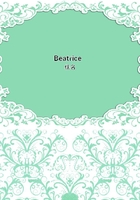
第11章 THE WATCHER AT THE DOOR(2)
"Help turn 'em on their faces over the seat, so--let the water drain from their innards. It's the only chance. Now give me that sail to cover them--so. You'll live yet, Miss Beatrice, you ain't dead, Iswear. Old Eddard has saved you, Old Eddard and the good Goad together!"Meanwhile the boat had been got round, and the men were rowing for Bryngelly as warm-hearted sailors will when life is at stake. They all knew Beatrice and loved her, and they remembered it as they rowed. The gloom was little hindrance to them for they could almost have navigated the coast blindfold. Besides here they were sheltered by the reef and shore.
In five minutes they were round a little headland, and the lights of Bryngelly were close before them. On the beach people were moving about with lanterns.
Presently they were there, hanging on their oars for a favourable wave to beach with. At last it came, and they gave way together, running the large boat half out of the surf. A dozen men plunged into the water and dragged her on. They were safe ashore.
"Have you got Miss Beatrice?" shouted a voice.
"Ay, we've got her and another too, but I doubt they're gone. Where's doctor?""Here, here!" answered a voice. "Bring the stretchers."A stout thick-set man, who had been listening, wrapped up in a dark cloak, turned his face away and uttered a groan. Then he followed the others as they went to work, not offering to help, but merely following.
The stretchers were brought and the two bodies laid upon them, face downwards and covered over.
"Where to?" said the bearers as they seized the poles.
"The Vicarage," answered the doctor. "I told them to get things ready there in case they should find her. Run forward one of you and say that we are coming."The men started at a trot and the crowd ran after them.
"Who is the other?" somebody asked.
"Mr. Bingham--the tall lawyer who came down from London the other day.
Tell policeman--run to his wife. She's at Mrs. Jones's, and thinks he has lost his way in the fog coming home from Bell Rock."The policeman departed on his melancholy errand and the procession moved swiftly across the sandy beach and up the stone-paved way by which boats were dragged down the cliff to the sea. The village of Bryngelly lay to the right. It had grown away from the church, which stood dangerously near the edge of the cliff. On the further side of the church, and a little behind it, partly sheltered from the sea gales by a group of stunted firs, was the Vicarage, a low single-storied stone-roofed building, tenanted for twenty-five years past and more by Beatrice's father, the Rev. Joseph Granger. The best approach to it from the Bryngelly side was by the churchyard, through which the men with the stretchers were now winding, followed by the crowd of sightseers.
"Might as well leave them here at once," said one of the bearers to the other in Welsh. "I doubt they are both dead enough."The person addressed assented, and the thick-set man wrapped in a dark cloak, who was striding along by Beatrice's stretcher, groaned again.
Clearly, he understood the Welsh tongue. A few seconds more and they were passing through the stunted firs up to the Vicarage door. In the doorway stood a group of people. The light from a lamp in the hall struck upon them, throwing them into strong relief. Foremost, holding a lantern in his hand, was a man of about sixty, with snow-white hair which fell in confusion over his rugged forehead. He was of middle height and carried himself with something of a stoop. The eyes were small and shifting, and the mouth hard. He wore short whiskers which, together with the eyebrows, were still tinged with yellow. The face was ruddy and healthy looking, indeed, had it not been for the dirty white tie and shabby black coat, one would have taken him to be what he was in heart, a farmer of the harder sort, somewhat weather-beaten and anxious about the times--a man who would take advantage of every drop in the rate of wages. In fact he was Beatrice's father, and a clergyman.
By his side, and leaning over him, was Elizabeth, her elder sister.
There was five years between them. She was a poor copy of Beatrice, or, to be more accurate, Beatrice was a grand development of Elizabeth. They both had brown hair, but Elizabeth's was straighter and faint-coloured, not rich and ruddying into gold. Elizabeth's eyes were also grey, but it was a cold washed-out grey like that of a February sky. And so with feature after feature, and with the expression also. Beatrice's was noble and open, if at times defiant.
Looking at her you knew that she might be a mistaken woman, or a headstrong woman, or both, but she could never be a mean woman.
Whichever of the ten commandments she might choose to break, it would not be that which forbids us to bear false witness against our neighbour. Anybody might read it in her eyes. But in her sister's, he might discern her father's shifty hardness watered by woman's weaker will into something like cunning. For the rest Elizabeth had a very fair figure, but lacked her sister's rounded loveliness, though the two were so curiously alike that at a distance you might well mistake the one for the other. One might almost fancy that nature had experimented upon Elizabeth before she made up her mind to produce Beatrice, just to get the lines and distances. The elder sister was to the other what the pale unfinished model of clay is to the polished statue in ivory and gold.